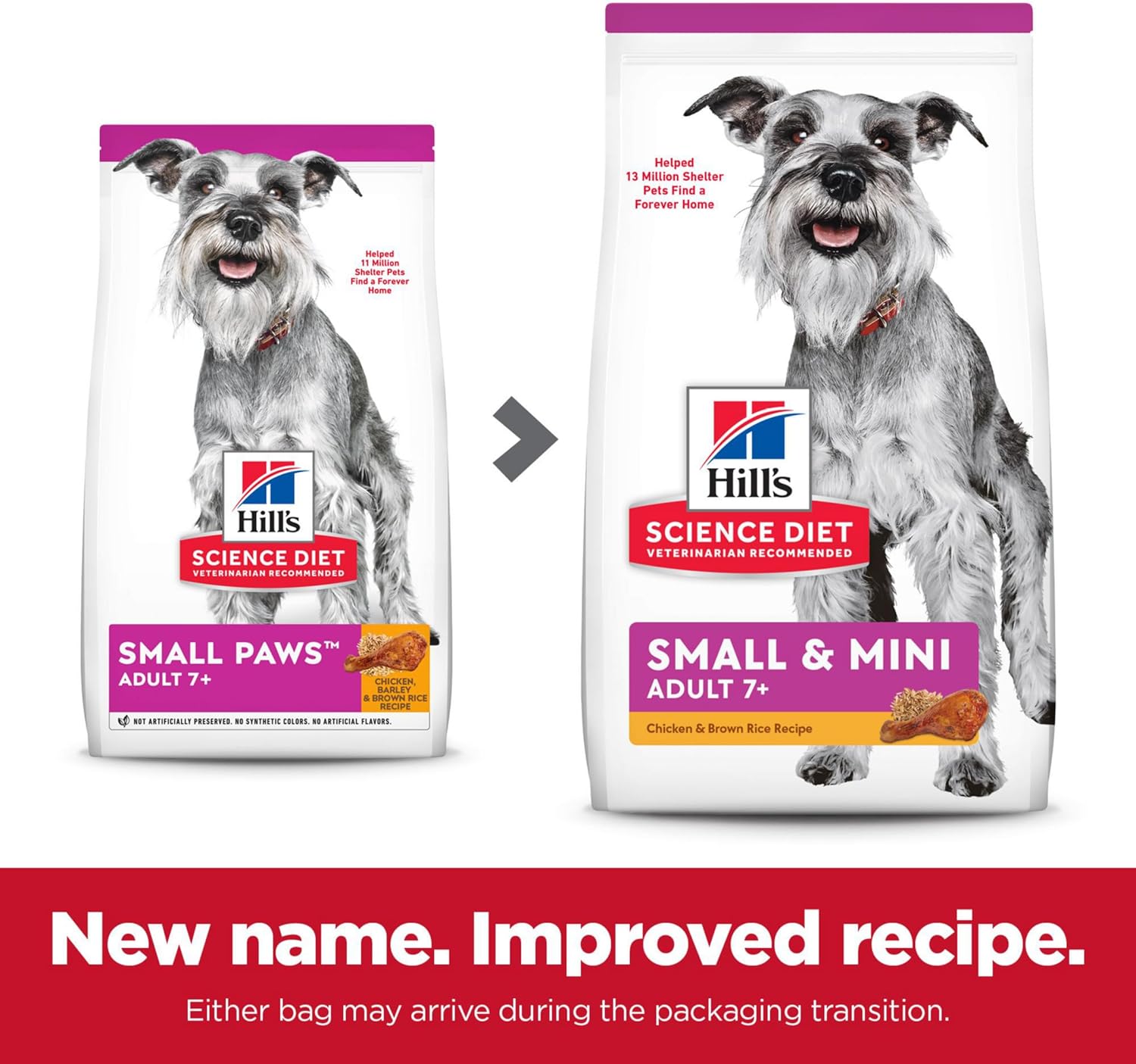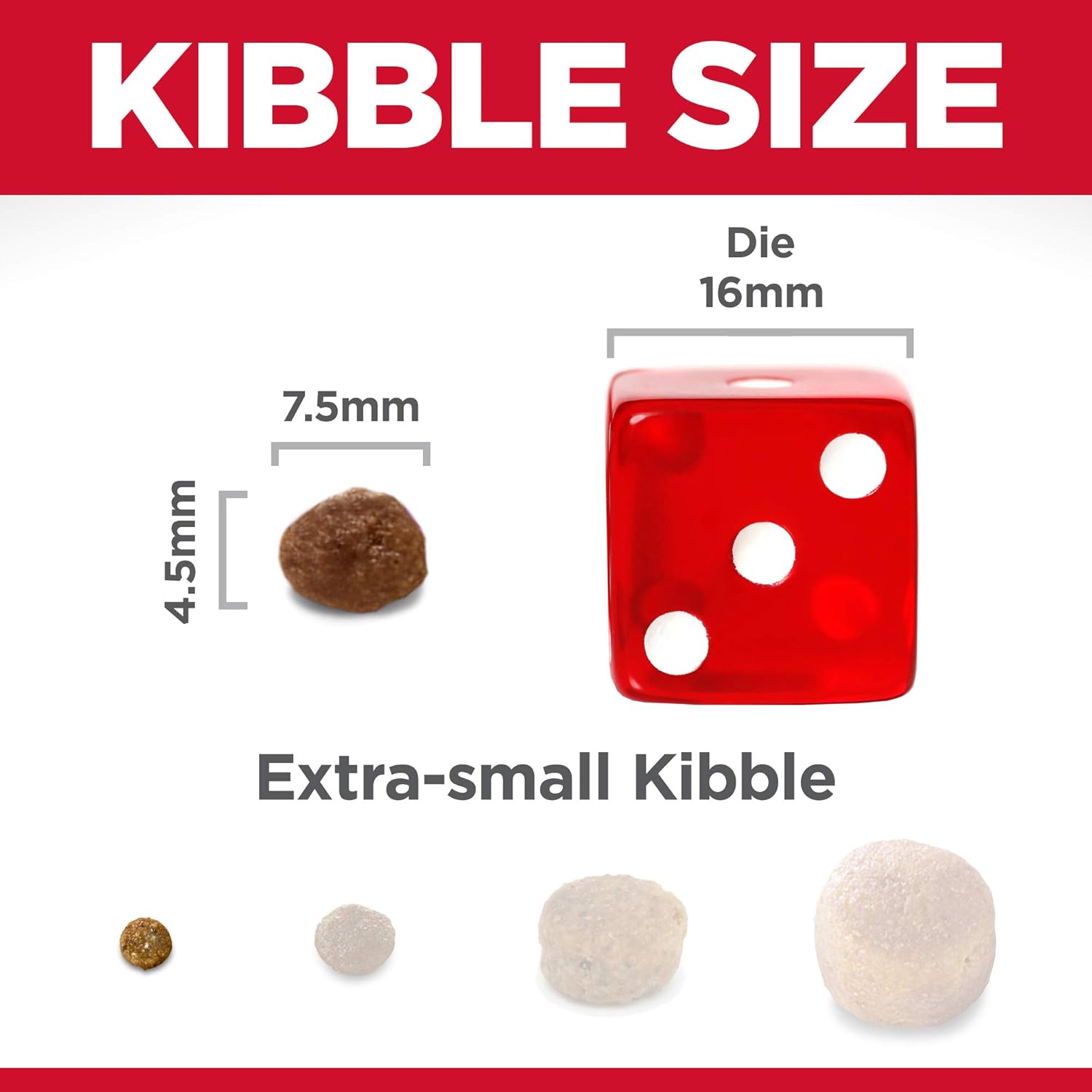









Understanding the Nutritional Needs of Small Breed Senior Dogs
Small-breed dogs bring joy and companionship to many homes, but they also come with unique nutritional demands, especially as they age. For small breeds, meeting these needs becomes increasingly crucial, and owners must ensure they provide a balanced diet that supports their health and lifestyle. In this article, we’ll explore the specific nutrition requirements of older small dogs and discuss how Hill’s Science Diet Small & Mini Adult 7+ dry dog food meets those needs effectively.
The Importance of Proper Nutrition for Older Small Dogs
What Makes Small Breed Dogs Different?
Small breed dogs, generally classified as those weighing less than 20 pounds, have distinct dietary needs compared to larger breeds. Their metabolism is faster, which means they require energy-dense food that’s easy to digest. Additionally, their smaller mouths necessitate kibble that is appropriately sized to prevent choking and promote healthy chewing.
Why Focus on Senior Nutrition?
As dogs age, they encounter a range of physical and mental changes. For small breeds, these changes can be accentuated due to their size. Older small dogs often experience:
- Weight Management Issues: Smaller dogs are prone to obesity, which can lead to health complications.
- Joint and Bone Problems: Conditions like arthritis are common in seniors.
- Reduced Immune Function: Aging dogs might experience decreased immunity, making them more susceptible to illness.
Understanding these factors emphasizes the need for a diet formulated specifically for senior dogs.
Key Nutrients for Senior Small Dogs
Essential Nutrients to Support Aging Dogs
When selecting a dog food, consider the following essential nutrients that are particularly beneficial for older small dogs:
- Protein: Quality protein supports muscle maintenance as dogs age. Look for food that features real meat as the primary ingredient.
- Omega Fatty Acids: Omega-6 fatty acids and DHA help maintain a healthy coat and skin while also supporting brain health.
- Antioxidants: A blend of antioxidants can enhance your dog’s immune health, protecting against age-related decline.
- Balanced Minerals: Important for maintaining heart, kidney, and bladder health.
Hill’s Science Diet Small & Mini Adult 7+ Dog Food: A Comprehensive Solution
Hill’s Science Diet Small & Mini Adult 7+ dry dog food is tailored to specifically address the needs of senior small dog breeds. Let’s break down its key features:
1. Tailored Nutrition for Aging Gracefully
This formula delivers a synergistic blend of nutrients that provide energy while aiding in maintaining an ideal weight. The tiny kibble size is designed for small mouths, ensuring that older dogs can chew comfortably without any hassle.
2. Heart, Kidney, and Bladder Health
Formulated with balanced minerals, this dog food supports critical organ functions. The nutrients are specifically chosen to reduce the likelihood of developing health issues associated with aging.
3. Beneficial Fatty Acids and Vitamins
Rich in omega-6 fatty acids and vitamin E, Hill’s Science Diet helps maintain a glossy coat and healthy skin. These ingredients directly contribute to overall wellness and vitality.
4. Digestive Health Support
With an easy-to-digest formula, Hill’s Science Diet recognizes that senior dogs often face gastrointestinal challenges. This makes feeding easier on their stomachs, promoting absorption of vital nutrients.
5. Immune System Reinforcement
The proprietary antioxidant blend not only supports immunity but also promotes overall health, crucial for aging dogs who may find it harder to fend off illnesses.
How to Transition to Senior Dog Food
What Steps Should You Take?
Transitioning your small dog to a senior formula requires care:
- Gradual Introduction: Start by mixing a small amount of the new food with the current food. Gradually increase the proportion of the new food over seven days.
- Monitor Health: Keep an eye on your dog’s reaction to the new food. Look out for any signs of digestive upset or changes in behavior.
- Consult Your Vet: For personalized advice, especially if your dog has specific health issues, your veterinarian can provide guidance tailored to your dog’s unique situation.
Pros and Cons of Hill’s Science Diet Small & Mini Adult 7+
Pros
- Fortified with Essential Nutrients: Contains the nutrients needed for aging dogs.
- Highly Digestible: Reduces the risk of gastrointestinal issues.
- Veterinarian Recommended: A trusted brand with a solid track record.
Cons
- Price Point: Can be more expensive than generic options.
- Availability: May not be easily found in all pet supply stores.
Conclusion
In summary, senior small dogs have unique nutritional needs that require special consideration. Hill’s Science Diet Small & Mini Adult 7+ dry dog food provides a premium approach to manage these requirements, offering balanced nutrition that supports healthy aging. By focusing on quality ingredients that promote overall wellness, this dog food helps ensure that your furry friends enjoy their golden years to the fullest. As responsible pet owners, prioritizing their health through proper nutrition is our first step in providing a loving and nurturing environment.
FAQs
1. What Age is Considered Senior for Small Breed Dogs?
Typically, small breed dogs are considered seniors at around seven years old, depending on their breed and individual health.
2. Can I Mix Senior Dog Food with Regular Dog Food?
Yes, but it’s essential to gradually transition between foods to avoid digestive issues.
3. How Much Hill’s Science Diet Should I Feed My Dog?
Refer to the packaging recommendations that consider your dog’s weight and activity level. Adjust portions as needed to maintain a healthy weight.
4. Is Hill’s Science Diet Suitable for All Small Breeds?
Yes, this food is tailored for small and mini breeds, making it suitable for various small dog types.
5. Are There Other Formulations for Special Health Needs?
Yes, Hill’s offers various formulations for specific health issues such as weight management, joint health, and sensitive stomachs. Consult your vet for recommendations based on your dog’s health status.








